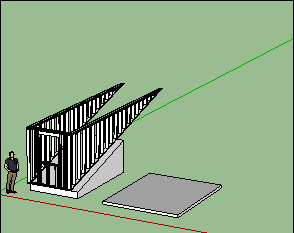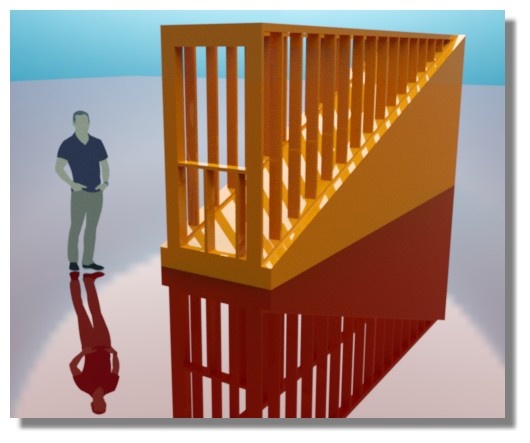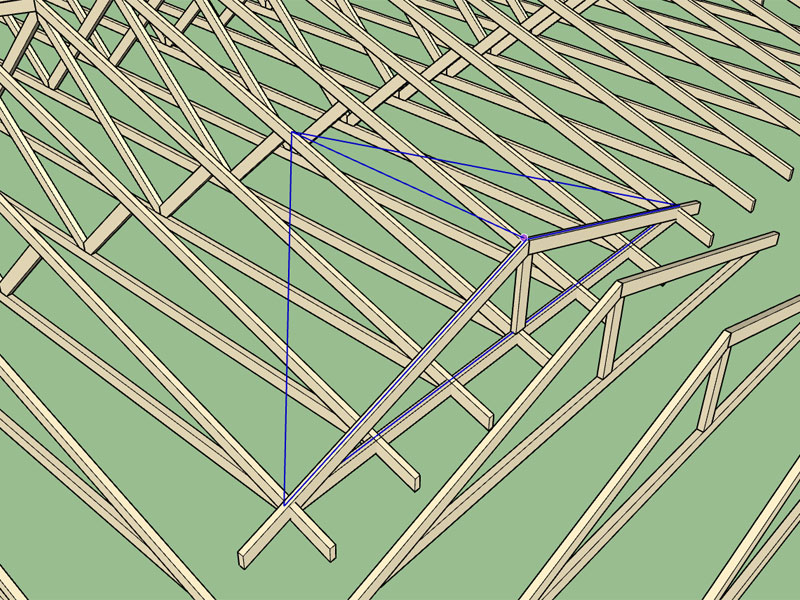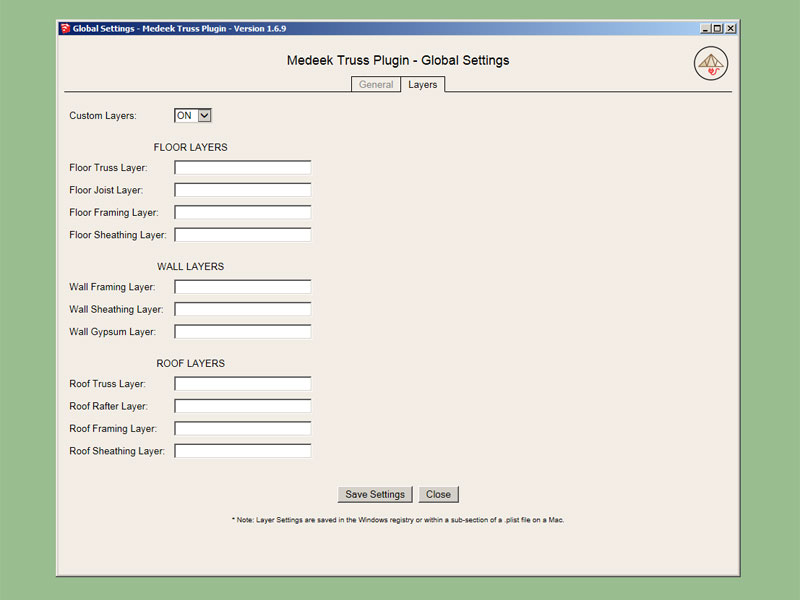3D Truss Models
-
Has anyone had a chance to run the plugin much within SU 2017. I loaded it up yesterday and didn't encounter any problems, so for now I'm going to assume that its compatible with 2017.
On a different note I've got my injection coming up on Tuesday, fingers crossed that it works and solves my issues that I've been dealing with the last 2-3 months.
-
I've done a little playing and all appears to work fine.
-
SU 2017
Bug SPlatch (Closing SU) With Draw Minor Roof / Gable Dormer (and repeatitive)But it's my fault!

I don't choose an inclined Plane!
So you must make something about that!

Where we can see that Chris is not exactly at the ground 0 !


-
@medeek said:
On a different note I've got my injection coming up on Tuesday, fingers crossed that it works and solves my issues that I've been dealing with the last 2-3 months.
Wish you good luck with your treatment... miserable to be sidelined and in pain.
Haven't commented on this thread before, but have been following it closely and been impressed with both the rate of development and the ambitious scope of your extension.
Hope to see you back in shape and rocking your work in the near future.
Doug
-
I've just had a request for a dual pitch gable roof (rafter). I've seen plenty of dual pitch truss roofs but I've never seen a rafter roof that has different pitches on each side, not to say that this can't be done. Any thoughts on this?
If it is something that people will use I will add it to the to-do list.
-
@medeek said:
I've just had a request for a dual pitch gable roof (rafter). I've seen plenty of dual pitch truss roofs but I've never seen a rafter roof that has different pitches on each side, not to say that this can't be done. Any thoughts on this?
If it is something that people will use I will add it to the to-do list.
They happen, but very seldom.
-
The problem isn't so much that they don't come along often, it's when they DO come along you need the tool NOW! I don't normally design dual pitches either but up in the Sierra Nevada mountains (in the snow) it's done quite a bit.
-
This is an example of the wireframe (temporary) graphic that is shown while creating a valley set.

-
My last release was way back in the middle of September its almost been 2 months. Even with my being severely sidelined and unable to accomplish much with its development the number of new registrations and downloads of the plugin has remained quite steady, much to my surprise. This tells me that the plugin has some value to the design community and has given me a renewed positive outlook for its future.
The feedback has also been quite heavy with a number of very good ideas for improvements and new features. I really appreciate this feedback, it has to a large degree shaped the development thus far.
Looking at my to-do list I probably have enough work to keep me busy for two years working full time (8+ hours a day). At this point I'm not sure how I'm going to get it all done.
-
It's good to hear the plugin / extension is making headway in the market!
@medeek said:
Looking at my to-do list I probably have enough work to keep me busy for two years working full time (8+ hours a day). At this point I'm not sure how I'm going to get it all done.
Pace yourself, draft an outline plan of what you would like to accomplish, allow for setbacks and possibly minor features / improvements you may want to do. But I'm sure you know all of this and have done so already...

-
I've repackaged the .rbz file this morning so that when it installs into SU 2017 the extension will have the appropriate hash file and appear as "signed". I have not yet rolled the revision (1.7.0) which includes the updates for stepdown hip truss sets, there is still substantial work before I am ready to release that module and version.
-
It appears that writing to the text logfiles within the "logs" sub-folder invalidates the hash and hence the signature in SU 2017. This does not in any way cause the plugin to stop working but it is an annoyance that I did not foresee.
I will work on a solution to this so that the signature in SU2017 remains valid.
When the plugin is first installed the signature will appear valid however as soon as the logfiles are written to the signature will appear as invalid. In my opinion the hash should only include .rb, .rbs and .rbe files and not other misc. file types.
-
When I repackaged the .rbz file I accidentally used my latest code base so you might notice that the general settings now shows the plugin serial number and the ability to update it. I actually did not intend to release this until version 1.7.0 but regardless it is now live. When you install the full version of the plugin you must now enter in your serial number to register it. The serial defaults to "TRIAL" which puts the plugin into trial mode and has some limitations. Once you enter in your serial it is stored in the registry so one could completely reinstall the plugin and the serial number does not need to be re-entered. This hopefully is convenient for those updating the plugin to a newer version.
-
Nathaniel, I know my licence period has expired (about a month ago IIRC) for access to newer versions and I probably need to renew, what are the renewal policies and costs?
-
I haven't got a renewal process in place yet, just "purchase a new license". Don't renew just yet, I will give this some thought over the weekend and see if I can implement something that allows for a license renewal at a slightly reduced cost.
Users should be rewarded for renewing in my opinion so a license renewal should not be the cost of the initial "new" license.
I'm thinking the renewal cost will be $20.00 USD, hopefully this is low enough to motivate existing users to renew and upgrade.
-
Make sure that you offer those of us who renewed (but paid the full boat price since the renewal process hasn't been implemented yet) a refund of the extra dollars or some other goody (maybe apply the overage to next year's upgrade fee?).
-
For those who have renewed prior to the renewal process/pricing I will extend your license and additional 6 months which will make it equivalent in cost to the $20 renewal cost.
-
Thanks Nathaniel - much appreciated!
-
Update on my neck situation:
Follow up visit with the doctor today determined that the injection was not effective. Apparently the herniation is too severe for it to work so now my next option is a fusion or an artificial disk. The doctor figures I am a good candidate for either procedure (44 years young). Any opinions on which would be the better option, or experience with the newer artificial disk technology/system? I am leaning that direction based on my conversation with the doctor but the technology is not as tried and tested as the more conventional fusion.
This weekend I am going to do my best to make some progress on the plugin no matter how incremental.
-
The "Layers" tab in the global settings will look something like this:

Advertisement







